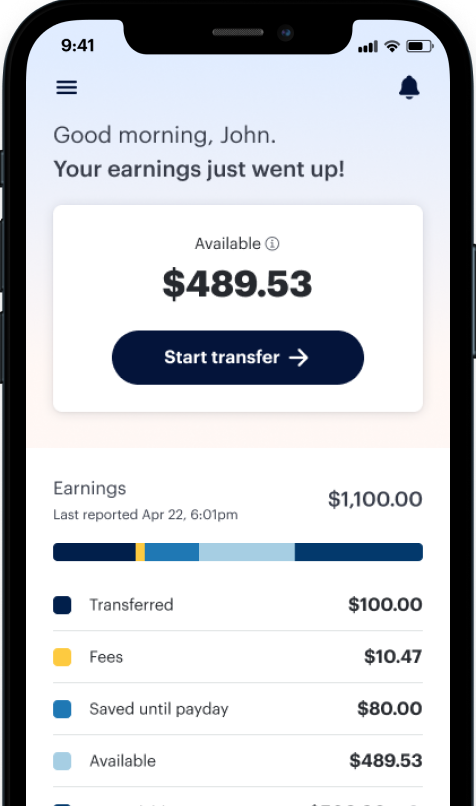August 14 marks National Financial Awareness Day, an opportunity to reflect on our financial health and take steps towards a more secure future.
Financial wellness can mean different things to different people, but it is most often perceived as having a stable and secure financial situation. This includes the ability to manage day-to-day finances, meet financial goals, and handle unexpected expenses without undue stress.
Many people associate financial wellness with being debt-free, having a good credit score, and saving for the future, including retirement.
Financial wellness also involves feeling confident and knowledgeable about personal finances, enabling informed decisions and fostering a sense of financial security and peace of mind.
Financial wellness is crucial for reducing stress and building long-term stability. Let’s explore some strategies for improving financial well-being, including the benefits of earned wage access.
The basic elements of financial wellness can be called “pillars of financial wellness.” These pillars typically include:
1. Budgeting and Money Management. Track your income and expenses to understand your spending habits. (Check out some more budgeting tips.)
2. Savings and Emergency Funds. Aim to save 3-6 months of living expenses for unexpected costs.
3. Debt Management: Prioritize paying off credit cards and other high-interest loans.
4. Financial Education and Literacy: Take advantage of any financial wellness or literacy resources from your employer and use free online resources to better understand your finances.
Does Your Employer Offer an Earned Wage Access (On Demand Pay) Benefit?
If your job offers an earned wages access benefit, make sure you take full advantage. This benefit lets you access a part of your paycheck before payday, which can improve your financial wellness. EWA can help you avoid expensive payday loans or high-interest credit cards, reducing debt and stress.
Many people consider paycheck advances or payday loans to bridge the gap until their next paycheck, but these options can be harmful. High interest rates and fees can lead to a cycle of debt that’s hard to break. Borrowers often end up paying much more than the initial amount borrowed, which can exacerbate financial stress and instability. It’s crucial to explore alternatives, like earned wage access, which offer more sustainable solutions for managing short-term financial needs.
Here’s how an EWA benefit can improve your financial health:
- Avoid late fees and overdraft charges: Access your earned wages on your schedule to help cover everyday expenses without racking up costly fees.
- Reduce reliance on high-interest loans: Avoid payday or credit card debt for short-term cash needs.
- Better budgeting: With more frequent access to your earnings, you can more effectively align your income with bill due dates.
- Eased financial stress: Knowing you have access to your earned wages can provide peace of mind and reduce anxiety about making ends meet.
National Financial Awareness Day is an excellent reminder to review your financial situation and consider these strategies.
Financial wellness is a constantly evolving journey, so every little step counts. You can work towards a more secure and stress-free financial future by consistently making informed decisions and utilizing tools like earned wage access.

